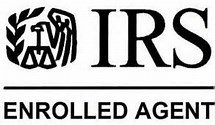Enrolled Agents (EAs) advise, represent, and prepare tax returns for individuals, partnerships, corporations, estates, trusts, and any entities with tax-reporting requirements and are the only federally licensed tax practitioners who specialize in taxation and also have unlimited rights to represent taxpayers before the IRS. The enrolled agent profession dates back to 1884 when, after questionable claims had been presented for Civil War losses, Congress acted to regulate persons who represented citizens in their dealings with the U.S. Treasury Department. Enrolled agents' expertise in the continually changing field of taxation enables them to effectively represent taxpayers at all administrative levels within the IRS.
Continuing Education
In addition to the stringent testing and application process, the IRS requires enrolled agents to complete 72 hours of continuing education, reported every three years, to maintain their enrolled agent status.
The Differences Between Enrolled Agents and Other Tax Professionals
Only enrolled agents are required to demonstrate to the IRS their competence in all areas of taxation, representation and ethics before they are given unlimited representation rights before IRS. Unlike attorneys and CPAs, who are state licensed and who may or may not choose to specialize in taxes, all enrolled agents specialize in taxation.
Ethical Standards
Enrolled agents are required to abide by the provisions of the Department of Treasury's Circular 230, which provides the regulations governing the practice of enrolled agents before the IRS.
What is an IRS Enrolled Agent?



